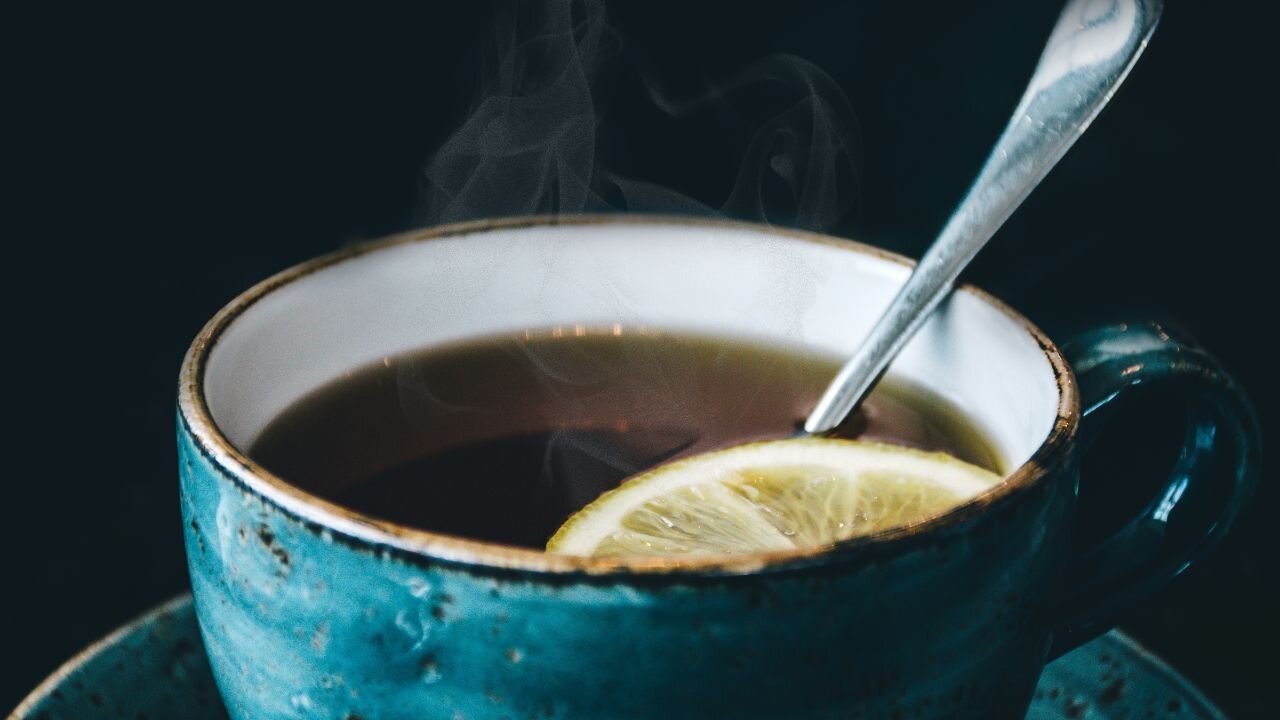Premium Only Content

3 in 4 Americans secretly enjoy being out sick so that they can stay home
Being sick is no fun, but three in four Americans recently surveyed (74%) have secretly enjoyed being sick and staying home.
A recent survey of 2,000 homeowners found 41% use this time to do some easy cleaning around the house, while 40% disconnect and unplug from the internet and social media.
And about a third (32%) simply enjoy being pampered.
Conducted by OnePoll on behalf of Trane Residential the survey also found the average person polled gets sick three times a year, with 47% ailing four times or more.
This often leads to missing out on events such as birthday parties (37%), sporting events (33%), weddings (32%), job interviews (31%) and dates (30%).
Classic staples such as hot tea (27%) and chicken noodle soup (26%) topped respondents’ must-have foods and beverages during recovery. Other surprising favorites included pizza (19%) and pancakes (17%).
Some shared less common remedies, including “whiskey or brandy in tea,” “colloidal silver” and “pickle juice.”
However, being unable to enjoy their most-loved foods while sick was deemed an annoyance (35%) — more so than pets making noises or wanting to cuddle (25%) or noise from neighbors (21%).
Aside from over-the-counter medications (43%), a favorite blanket or comforter (28%) and easy access to control their home’s temperature (26%) are among the top requests respondents have when they’re unwell.
People seem to have self-care down to a T, which may be why many more consider their child to be the most challenging patient (29%) rather than themselves (14%).
And over one in four say their spouse is the most annoying person while sick (27%).
Nearly half (48%) get a headache caring for the toughest patient in their house because this person over-exaggerates how badly they feel when ill.
But although one in five said they usually pick up an illness from their child (22%), people are much more concerned about catching something at the office (33%) than at home (12%).
“While there isn’t much we can do about the air quality in public spaces, there are ways to monitor, maintain and improve your air at home,” said Jennie Bergman, product manager of indoor environmental quality for Trane. “While only a third (33%) of homeowners say they swap out air filters when someone in their household is sick, it’s a step to consider taking. Having a quality, clean air filter, or better yet a high efficiency whole home air cleaner, can help catch those bacteria and virus particles from your home. Indoor air quality plays an important role in helping prevent getting a cold or the flu. Choose an air cleaner that removes up to 99.9% of the Influenza A (H1N1) virus.”
While half (51%) clean their home once or a few times a week, only a third (33%) do so when someone in their household is sick.
“Cleaner indoor air helps to limit exposure to indoor allergy triggers as well as viruses,” added Dr. John McKeon, the CEO of Allergy Standards Limited, international standards body of the asthma & allergy friendly® Certification Program. “There are different types of air cleaners and purifiers available, from those that connect directly to your HVAC system to standalone devices. Look for systems and air cleaners that are CERTIFIED ‘asthma & allergy friendly,’ which means that they have been scientifically proven to remove allergens to established certification criteria.”
UNCOMMON REMEDIES PEOPLE USE WHILE SICK
• “Whiskey or brandy in tea”
• “Colloidal silver”
• “Pickle juice”
• “An ice pack wrapped in a cardboard panel”
• “Lemon and palm oil”
• “Hot chocolate with red pepper”
• “Oregano oil”
Survey methodology:
This random double-opt-in survey of 2,000 American homeowners was commissioned by Trane Residential between Nov. 28 and Nov. 29, 2022. It was conducted by market research company OnePoll, whose team members are members of the Market Research Society and have corporate membership to the American Association for Public Opinion Research (AAPOR) and the European Society for Opinion and Marketing Research (ESOMAR).
-
 0:54
0:54
SWNS
18 days agoDo you need a ‘resolution buddy’ to help keep you on track?
341 -
 LIVE
LIVE
MYLUNCHBREAK CHANNEL PAGE
20 hours agoUnder The Necropolis - Pt 4
1,396 watching -
 LIVE
LIVE
Right Side Broadcasting Network
1 day agoLIVE: President Donald J. Trump Holds His First Rally After Inauguration in Las Vegas - 1/25/25
27,472 watching -
 LIVE
LIVE
Jewels Jones Live ®
1 day agoWEEK ONE IN REVIEW | A Political Rendezvous - Ep. 107
1,993 watching -
 1:33:29
1:33:29
Michael Franzese
20 hours agoTrump Wastes No Time: Breaking Down Trump’s First Week Executive Orders | LIVE
34.7K22 -
 1:26:44
1:26:44
Tactical Advisor
5 hours agoTrump Starting Strong/Shot Show Recap | Vault Room Live Stream 015
30.6K7 -
 10:18
10:18
MrBigKid
59 minutes agoInsanely Compact Hunting Tripod you HAVEN'T heard of... Revolve
1 -
 20:29
20:29
marcushouse
7 hours ago $0.02 earnedUnleashing the Power of SpaceX's Starship: Why is it a Big Deal!?
1377 -
 10:46
10:46
Rethinking the Dollar
21 hours agoTrump Knows 'The Real Threat' To Your National Security
5608 -
 17:13
17:13
Degenerate Jay
4 hours agoWB Games Is Falling Apart
1842